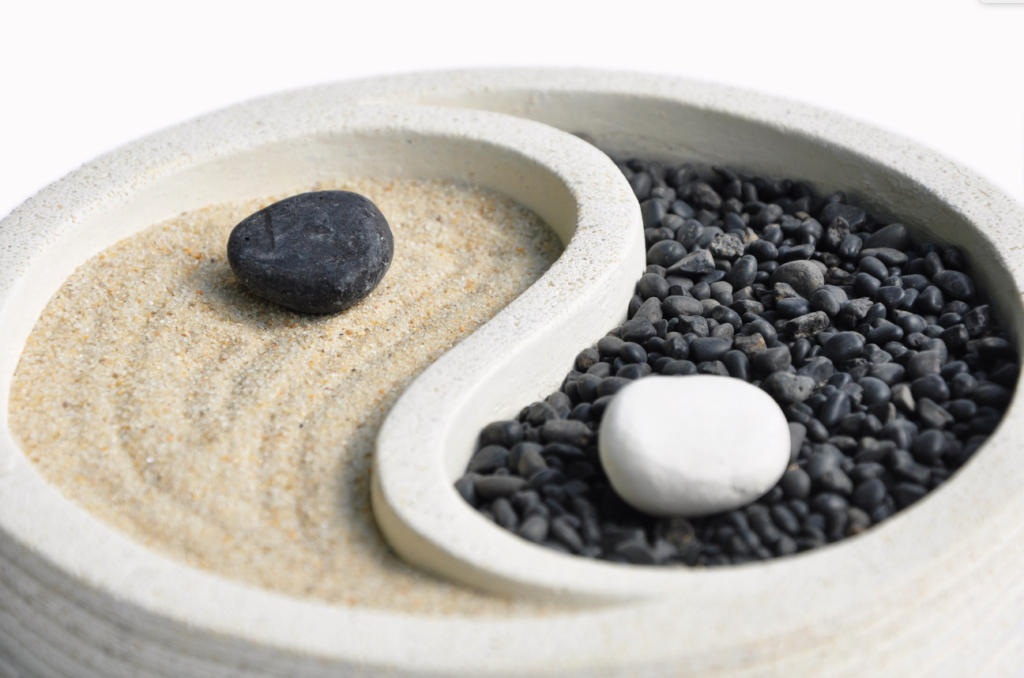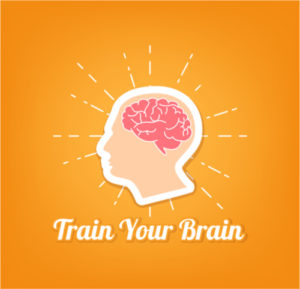 Happy June, loyal readers! Not only is June the month that it really starts to feel like summer, but June is also Effective Communication Month [1]. In order to start off the month right, I thought we could explore a little more as to why effective communication is so important in a field like ours.
Happy June, loyal readers! Not only is June the month that it really starts to feel like summer, but June is also Effective Communication Month [1]. In order to start off the month right, I thought we could explore a little more as to why effective communication is so important in a field like ours.
First, let us talk about what communication really is. According to one publication out of Columbia University, communication is a task which requires at least two active participants [2] (unless we’re caught talking to ourselves, but that’s something different entirely). In the use of spoken language as our primary form of communication, we have been able to harness an incredible amount of information that can be transferred in an infinite number of unique ways [2].
Because we have just so many different combinations of words that can mean so many different things, communication can get tricky. Not only do we have an incredible vocabulary with which to play, we also have an ever-increasing list of ways to implement this communication—face to face, phone call, text messages, emails, social media, and the list goes on. Nevertheless, as psychological professionals, it is necessary that we have a handle on our own communication styles and any idiosyncrasies that may exist.
Where can communication go wrong?
Well, there are two major phases to communication: when the message is “encoded” and when it is “interpreted”. The first of these issues we’re going to hit on is when something isn’t “encoded” properly. Encoding is just a fancy way to say that you’re putting your abstract thoughts into a more concrete form—words. There are several different ways that things can be verbally (and nonverbally) encoded [4]. For example, let us say you were having a spectacular day. You could verbally encode this by telling your best friend “wow, I just had a great day today!” or “everything just went my way today!”. It could be nonverbally encoded through your body language, such as a big smile. Think about how you might encode messages in your daily life—you are hungry, so you suggest to your coworker that you all go out to grab a bite to eat; you don’t like someone that you went out on a first date with, so you tell them that it simply is not working out.
Since this is the first major phase, this is also the first major phase where communication can go wrong. The way that you put a message into words or nonverbal cues could be incorrect. For instance, simply selecting the wrong word by mistake can drastically change the meaning of your message. Even mispronouncing a word can muddle the message that you are trying to send.
The second major phase of communication is interpretation [4]. This comes when the receiver of your message takes the information that you encoded with words and works out their own meaning behind the message [4]. Continuing the first example that was provided above, when your best friend hears the words “wow, I just had a really great day today!”, they’re most likely going to understand that “Lizzy feels as though she had a good day today”. From there, the receiver or interpreter can attach other meanings that they are able to glean from your message, such as “Lizzy is in a good mood” or “something exciting must have happened at work today”. This process is the second half of all encoding processes, so you can understand how this might help us to draw other conclusions about the person with whom we are engaged.
Naturally, this phase of communication can create confusion as well. The interpreter is using the information that they already know about the speaker and the information being sent through body language and verbal language to reassemble the message that the speaker is trying to send. This message is then assigned meaning and the interpreter can draw conclusions from there. These meanings and conclusions that we assign to the partner in communication may or may not be correct. It is important to take each of these assumptions with a grain of salt, as the encoder of these messages might not be trying to communicate those deeper meanings that we are assigning.
Communication in a helping profession
According to one psychologist, helping professions are based almost entirely off our ability to communicate [4]. T. L. Thompson describes our ability to communicate with our clients and our patients as an “invisible helping hand” [5]. At this point in our careers, I’m sure you have already noticed your powers of persuasion and your ability to get your point across. Kottler suggested that some of these innate qualities may have subconsciously drove us into these professions [4]. On the contrary, it is possible that through our rigorous training we have developed these skills.
Whatever the case may be, it stands that we have these skills, and we need to be able to utilize them to the best of our ability in order to be successful with our patients. Kottler details why it is so important for us to have good communication skills—it is necessary not only to set a good model for our clients, but also to be able to employ our treatment strategies. Most (if not all) psychological approaches are based around communication and the use of words. One study found that most frequently in therapeutic dyads, the professional was the one at fault for the issues in communication [5]. With the blame for communication difficulties falling more frequently on the professional, it should only serve to further our desire to become better communicators for the sake of our clients.
What can we do?
As you can start to see, having a conversation or sending an email involves much more than just words. Now that we know a little more about the actual message and how it can get misinterpreted, we can hopefully better address ways in which our communication can be improved.
Psychology Today published an article delineating three major, yet simple, methods that can be used to improve communication [6]. The first suggestion was to “be consistent” [6]. Being able to have messages that make sense together is extremely important for communicating not only with our clients but also with our peers and advisors. If we are talking in circles, or flipping back and forth between one thing and another, we are simply going to confuse our interpreter. Especially when working with clients, it is important to keep your message consistent. No one wants a therapist who can’t decide for themselves what should be done.
The second point to be an effective communicator was to keep the message clear [6]. In order to be taken seriously by our advisors, preceptors, professors, etc. we do not need to impress them with our word-of-the-day calendar. Rather, it is better that we should be straightforward and as understandable as possible when presenting an issue or any other message. With our clients as well keeping our message short and to the point is essential. They are not there to be impressed with our way with words. Instead, they are in our office to get the information they need and to gain insight on difficult life issues. They need our help, not our vocabulary.
Finally, Psychology Today suggested that being courteous in our words is the final step to improving our communication. Remember how easy it was for a message to be misinterpreted either through a simple issue in encoding or an issue with interpretation? It would be extremely easy for a client who is already depressed to interpret your lower affect one day as an insult or confirmation that you do not like them. Being sure that your demeanor is warm, and your message is positive and well-mannered is crucial [6].
With whom should I focus my communication skills?
So, to whom do we apply these fancy new communication techniques? Well, as a budding psychological professional, there are a few people who should be prioritized fairly high on that list.
Naturally, your clients should be the highest on this list. In the helping professions [5], such as our own, communication is often the key intervention strategy for our clients. Making sure that we are encoding our messages a bit more carefully, and that we are leaving little room for error in interpretation, as well as employing the “Three Cs” described above can help establish healthy communication[6] . Feeling as if the therapy room is an open place and is safe for sharing and communicating can help the client open up a bit more to you.
Communication between you as a student and your professors is vital [7]. In a teacher-learner dyad, being able to communicate is of utmost importance. Letting the professor know if what they are trying to teach is getting through can help the professor learn how to better convey the information. It can also help you as the student to btter gather the information that the professor is trying to pass along. Having open communication between professors also helps to build trusting relationships which can help you out later. Being able to rely on older professionals for guidance and for references can help you out as you progress through your career.
In the same vein, it is also important to have a solid communication with your internship directors, preceptors, or other training personnel [7]. In a workplace scenario, where you are still learning, perhaps courteousness is the most important of the “Three Cs” that were described above [6]. Being able to communicate your needs, while still remaining knowledgeable and conveying respect to those in authority is important [6].
Being able to keep in touch with your peers and cohort is also critical. Being able to build these connections that you will have for the rest of your professional career can only serve to benefit you. Opening up communication within your peers and cohort helps to create a solids support network of others going through similar situations and struggles as you. That can help you to find support or discuss coping methods that have worked for you and that have worked for others. Besides a support network, open communication within your peer group can help in your professional career when you are looking for referral sources, or when you need someone to whom you can refer out. Having these peers available as consults, referrals, and just good friends is all hinged on good communication.
Finally, keeping in touch with your friends and family (especially while you’re going through graduate school) is necessary. Even though it may feel as though you are drowning maintaining all these new professional relationships with clear and concise communication, it is important not to neglect your personal relationships. As one of my advisors frequently reminds me, just because you’re going through graduate school doesn’t mean that everyone else is. Make time to see your friends and family and make sure that they are receiving the message that you care about them and that they are a priority. You want to make sure that at the end of your time in graduate school, you have someone to celebrate with.
References
- Communications, V. (2014). June is Effective Communications Month. Retrieved from https://news.vanderbilt.edu/2014/06/05/june-effective-communications-month/
- Krauss, R. M. (2002). The psychology of verbal communication. International Encyclopaedia of the Social and Behavioral Sciences. London: Elsevier, 16161-16165.
- Davis, M. H., & Johnsrude, I. S. (2003). Hierarchical processing in spoken language comprehension. Journal of Neuroscience, 23(8), 3423-3431.
- Kottler, J. (2017). On being a therapist. Oxford University Press.
- Thompson, T. L. (1984). The invisible helping hand: The role of communication in the health and social service professions. Communication Quarterly, 32(2), 148-163.
- Bourg Carter, S. (2013). The 3 C’s of Effective Communication. Retrieved from https://www.psychologytoday.com/us/blog/high-octane-women/201304/the-3-cs-effective-communication
- Skillful Communication in the Workplace – Smart Psychology. (2015). Retrieved from http://www.smartpsychology.ie/skillful-communication-in-the-workplace/








 It’s not what you think. While the difficulty of Special Forces training around the world is known to be extreme, especially among the few who have actually endured it, what the Russian Spetsnaz goes through is on another level.
It’s not what you think. While the difficulty of Special Forces training around the world is known to be extreme, especially among the few who have actually endured it, what the Russian Spetsnaz goes through is on another level.